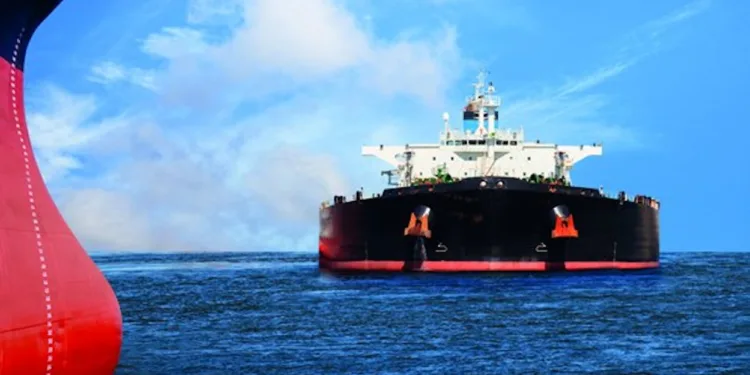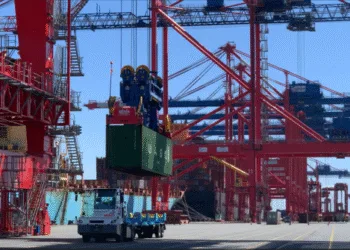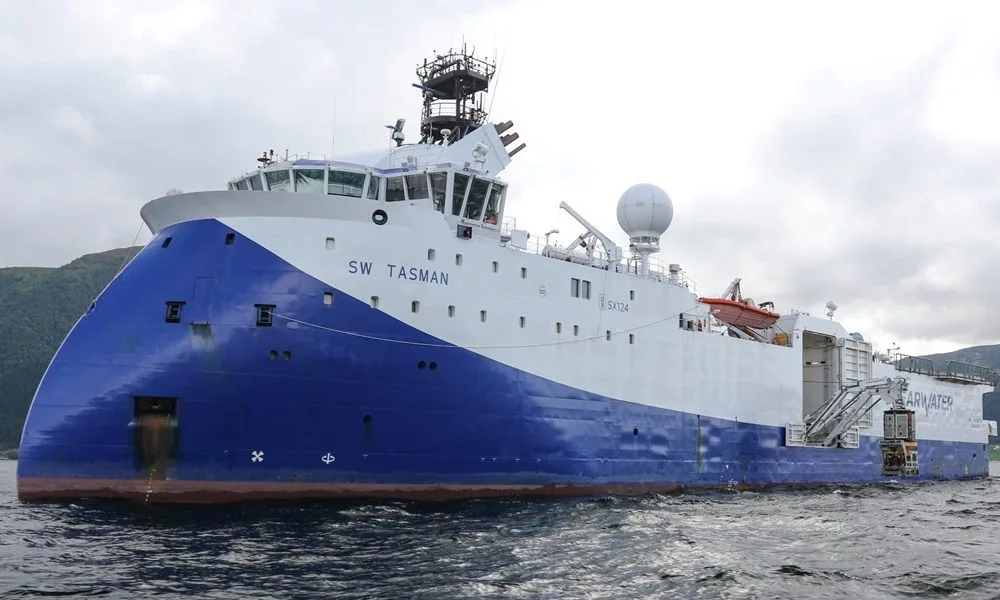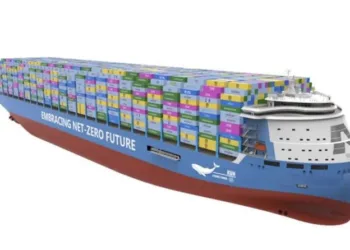Calling it a “European-led neocolonial export of global climate regulations,” the Trump administration has threatened new measures against nations that vote for mandatory greenhouse gas (GHG) limits on international shipping and establishes a pricing system for emissions.
Shipping nations are gathering this week in London to vote on the Net-Zero Framework developed by the International Maritime Organization.
“President Trump has made it clear that the United States will not accept any international environmental agreement that unduly or unfairly burdens the United States or harms the interests of the American people,” the State Department said in a release. “This will be the first time that a United Nations organization levies a global carbon tax on the world.”
Under the plan, vessel operators will be required to report GHG levels annually; those vessels exceeding emissions limits will pay fees based on their excess emissions, while those using cleaner fuels will receive incentives.
Ocean carriers for years have been pro-active in reducing harmful emissions; the largest ships account for 85% of the sector’s GHG total. About 41% of container ships on order are designed to operate with alternative fuels such as liquefied natural gas or ammonia – more than half the tonnage of container ships on order.
Nearly all ocean-going ships are built outside the U.S., mostly in China, 51%; South Korea, 28%, and Japan, 15%.
“The Administration unequivocally rejects this proposal before the International Maritime Organization and will not tolerate any action that increases costs for our citizens, energy providers, shipping companies and their customers, or tourists. The economic impacts from this measure could be disastrous, with some estimates forecasting global shipping costs increasing as much as 10% or more. We ask you to join us in rejecting adoption of the NZF at the October meeting and to work together on our collective economic and energy security.”
The statement was signed by Secretary of State Marco Rubio, Secretary of Energy Chris Wright, and Secretary of Transportation Sean Duffy.
In the U.S. statement, retaliatory measures against nations voting for the plan could include:
- Blocking vessels from U.S. ports;
- Probes and possible regulations over those nations’ anti-competitive practices;
- Visa restrictions for vessel crews;
- Penalties covering U.S. government contracts for new commercial ships and liquified natural gas terminals;
- Additional port fees on ships owned, operated, or flagged by those countries;
- Sanctions on officials sponsoring activist-driven climate policies.
“The United States will be moving to levy these remedies against nations that sponsor this European-led neocolonial export of global climate regulations. We will fight hard to protect our economic interests by imposing costs on countries if they support the NZF. Our fellow IMO members should be on notice.”
Washington had previously worked closely with the IMO on GHG regulations. The reversal is not unprecedented: The U.S. was central to the development of the International Criminal Court, but has never ratified the treaty recognizing its authority.
The new measures come as the U.S. escalates its trade war with China. Costly fees on Chinese-built and -operated cargo ships calling American ports are slated to take effect Tuesday; new tariffs more than doubling the cost of Chinese-made container cranes and other equipment are set to take effect Nov. 1.
Beijing has retaliated with port fees on U.S. shipping, also effective Oct. 14.
Find more articles by Stuart Chirls here.
Related coverage:
Hike brings U.S. tariffs on China container cranes to as much as 270%
China retaliates with new fees on U.S. shipping
Maersk ‘closely’ monitoring Red Sea for eventual return to Suez Canal, says diplomat
Tariffs cause some China imports to crash 44% in September
The post U.S. threatens global shipping over new carbon tax appeared first on FreightWaves.


















